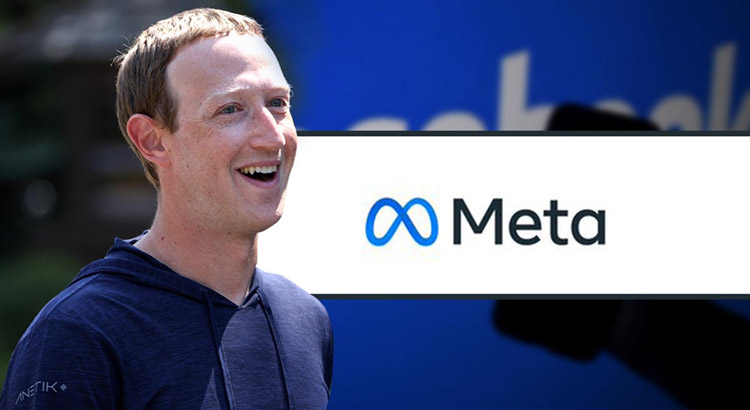The transformation of Facebook into Meta was nothing short of groundbreaking. It wasn’t just a rebranding; it was a bold statement of intent—a glimpse into the future envisioned by Mark Zuckerberg and his team. While many initially saw it as a simple corporate makeover, the truth is far more ambitious. Meta represents a shift from being a social media giant to becoming a key architect of the metaverse, a digital realm where our physical and virtual worlds collide.
In this blog, we’ll explore why Facebook made this massive leap, the implications of this change, and how Meta is shaping the future of technology.
The Birth of Facebook: A Platform That Changed the World
It all began in a Harvard dorm room in 2004. Mark Zuckerberg and his college friends created The Facebook, a social networking site initially designed for college students. Little did they know, their small platform would grow into a global phenomenon connecting billions of people worldwide. Over the years, Facebook’s impact was profound, revolutionizing the way we communicate, share, and interact online.
However, with time, Facebook became more than just a social platform. It acquired Instagram, WhatsApp, and Oculus, broadening its reach and creating an ecosystem that touched almost every aspect of digital interaction. Despite its monumental success, Facebook faced challenges too—scrutiny over privacy issues, misinformation, and its immense influence on society. It became clear that the company needed a fresh vision to move forward.
Why the Rebranding? The Vision Behind Meta
In October 2021, Mark Zuckerberg announced the transition from Facebook to Meta during the Facebook Connect conference. The change wasn’t just cosmetic; it was symbolic of a broader mission to build the metaverse. But why the name Meta?
“Meta” is derived from the Greek word meaning “beyond.” It reflects Zuckerberg’s ambition to take the company beyond social media and into next-generation virtual experiences. He described the metaverse as “an embodied internet where you’re in the experience, not just looking at it.”
This move highlighted the company’s shift from being just a social networking brand to becoming a tech leader focused on immersive experiences, AI, and virtual reality.
What Exactly Is the Metaverse?
If you’re wondering what the metaverse is, you’re not alone. It’s a relatively new concept that blends virtual reality (VR), augmented reality (AR), blockchain, and social interaction. Think of the metaverse as a digital universe where people can work, play, shop, and socialize—all while feeling fully immersed.
Meta’s vision for the metaverse includes:
- Horizon Worlds: A VR social platform where users can create and explore virtual spaces.
- Workspaces: A collaborative virtual environment that transforms how remote teams operate.
- Gaming: Enhanced gaming experiences powered by Meta’s Oculus devices.
In essence, the metaverse blurs the lines between the physical and digital, creating opportunities that were once the stuff of science fiction.
The Technology Powering Meta’s Evolution
Meta’s bold transition is backed by cutting-edge technology, and here’s what drives its ambitious plans:
1. Virtual Reality (VR) and Augmented Reality (AR)
Meta’s investment in VR and AR is at the core of its metaverse strategy. Devices like the Oculus Quest have made immersive experiences more accessible. Meanwhile, AR advancements are set to change how we interact with the physical world through features like smart glasses.
2. Artificial Intelligence (AI)
AI is a key enabler for Meta, from powering personalized experiences to creating hyper-realistic avatars. AI also enhances content moderation, ensuring safer and more inclusive spaces.
3. Blockchain and Decentralization
The metaverse is set to embrace decentralized technologies like blockchain to enable secure transactions, virtual goods, and NFTs (non-fungible tokens).
Meta’s Controversies: The Roadblocks Ahead
While Meta’s vision is grand, the company has faced criticism and challenges along the way:
- Privacy Concerns: With past controversies surrounding data misuse, Meta must prove it can be trusted in the metaverse era.
- Regulatory Scrutiny: Governments and regulators worldwide are keeping a close eye on Meta’s activities to ensure ethical practices.
- Adoption Challenges: Building a metaverse is one thing, but convincing billions of users to embrace it is an entirely different battle.
Meta’s journey isn’t without obstacles, but it’s clear the company is betting big on the future.
What’s Next for Meta?
The big question remains: What’s next for Meta? While the metaverse is still in its infancy, Meta has ambitious plans for the future:
- Mainstream Metaverse Adoption: Meta aims to make virtual reality as common as smartphones.
- More Immersive Devices: Expect next-gen AR/VR hardware that feels intuitive and seamless.
- Digital Economy Expansion: Meta plans to create robust digital marketplaces within the metaverse, allowing users to buy, sell, and trade virtual goods.
- Partnerships with Developers: Collaboration with third-party creators will be essential to building the metaverse ecosystem.
With its vast resources and visionary leadership, Meta is well-positioned to bring its dreams to life.
Why Meta’s Evolution Matters to You
Meta’s transformation isn’t just about technology; it’s about redefining how we live, work, and connect. Whether you’re a casual Facebook user or a tech enthusiast, the ripple effects of Meta’s vision will touch your life. Imagine attending virtual concerts, working in digital offices, or even shopping in VR malls—all powered by Meta.
The move from Facebook to Meta signals a new era, and love it or hate it, one thing is certain: it’s going to change the world.




